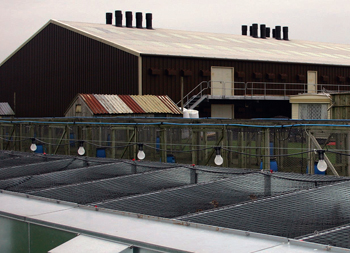DEFRA withdraws the Gamebird Code

DEFRA withdraws the Gamebird Code.
In an extraordinary step, agriculture minister, Jim Paice MP, has withdrawn the Code of Practice for the Welfare of Game birds Reared for Sporting Purposes in England, which was due to gain automatic approval in early June, for urgent redrafting.
The Game Farmers? Association (GFA) has welcomed the withdrawal by the new government of what it regarded as a flawed Gamebird Code, laid before Parliament prior to the General Election by the outgoing Labour minister.
Jonathan Crow, the Association?s chairman, said: ?Common sense has prevailed and a crisis for our industry has been averted at the eleventh hour.?
Earlier this year, late changes to the code were made by the then DEFRA minister against the recommendations of DEFRA?s own Gamebird Working Group and the advice of the Farm Animal Welfare Council.
At the time the new code was condemned by the GFA, the Countryside Alliance (CA), the Country Land & Business Association (CLA), the Game & Wildlife Conservation Trust (GWCT) and the National Gamekeepers? Organisation (NGO).
It was, however, supported by BASC, which approved of the late change regarding the space allowances for laying game birds, stating: ?BASC has welcomed the government?s decision to specify minimum space, already observed by almost all English game farms, for game bird laying stock within the code of practice that has been laid before Parliament.”
Speaking to Shooting Times magazine, BASC reaffirmed its opposition on raised laying cages in response to Jim Paice?s decision to withdraw the code.
The League Against Cruel Sports (LACS), which was also supportive of the code issued a statement condemning the move: ?The Code of Practice was a huge step forward. It banned the use of raised cages, which we welcomed and which BASC welcomed.”
The GFA, CA, CLA, GWCT and NGO made a joint statement in March asking that the code be withdrawn for reconsideration on the grounds that: ?The late changes would make it very difficult to refresh a breeding flock, would double the inspection requirement for all birds unnecessarily and could impact on the siting of release pens. The changes also include the imposition of unfounded space allowances for all laying game birds.”
In a letter to members of the working group Jim Paice specified all these areas as aspects of the code he wishes to discuss further.
He wrote: ?There are areas of the Code as currently drafted that I would like to focus our discussion around: 1) mixing new and existing livestock; 2) inspection of birds for signs of disease or injury; 3) use of certian management devices; 4) use of minimum space allowances for breeding pheasants and partridges; 5) siting of release pens”.
There will be another meeting of the Gamebird Working Group on 7 June to consider amendments to the code.








